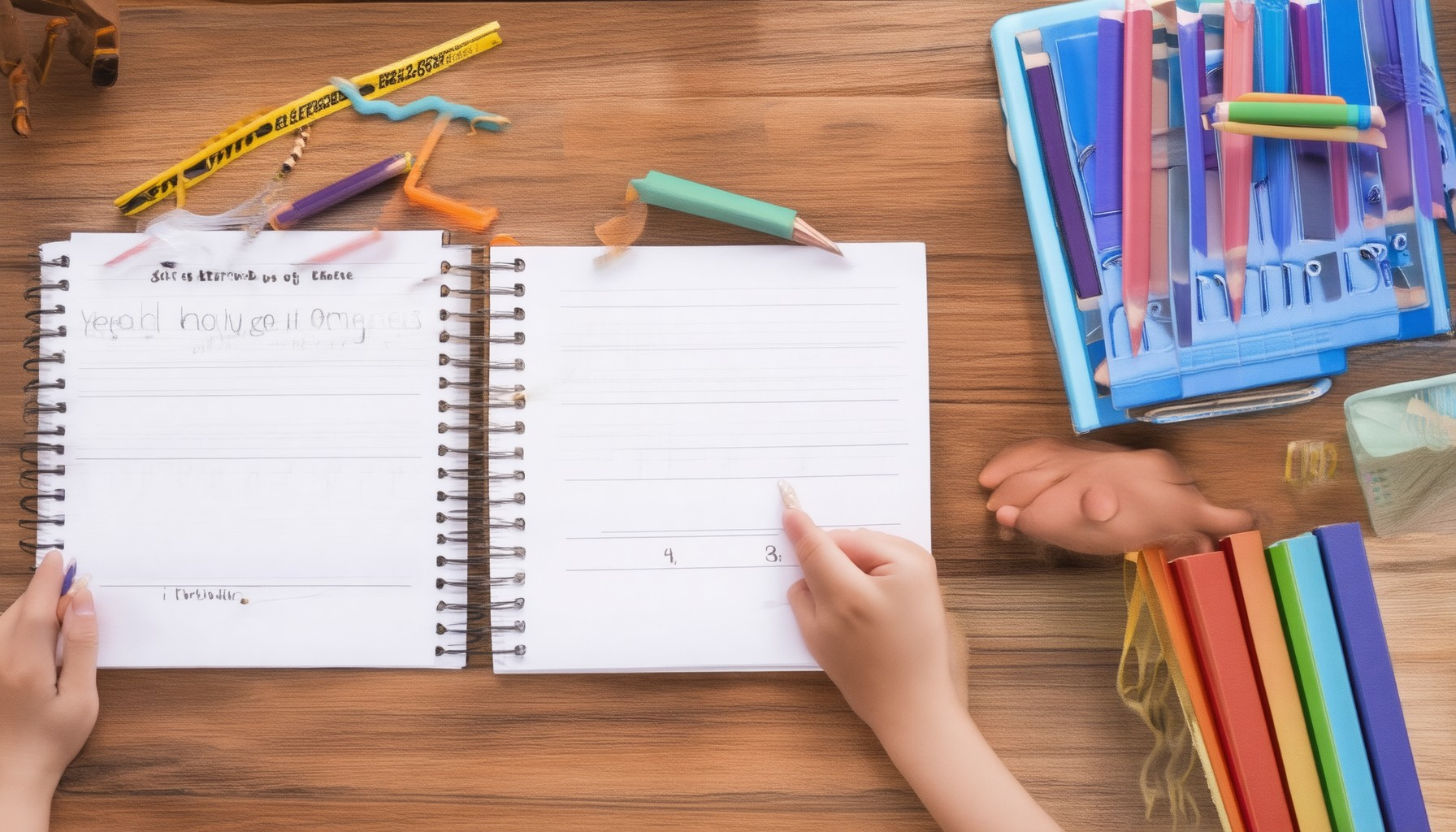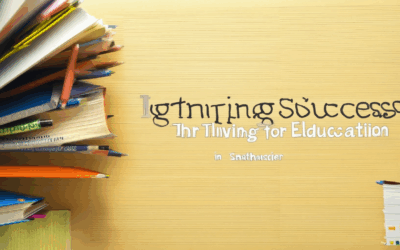Understanding effective school habits can unlock a world of academic success. For students aiming to excel, developing positive habits is crucial. These habits not only improve grades but also foster confidence, better relationships, and a more organized approach to learning. Whether you’re a struggling student or someone looking to refine your study skills, adopting the right habits can make a significant difference. This guide explores the top 10 effective school habits, offering insights into how they can transform your academic journey. From staying organized to embracing a growth mindset, these habits are designed to help you thrive in school and beyond. By cultivating these practices, you’ll not only ace your exams but also build a strong foundation for future success. Let’s dive into the details and discover how you can master these essential habits to achieve your full potential.
Key Takeaways
- Establish a Consistent Schedule: Create a fixed study routine to reinforce learning and ensure steady progress.
- Engage Actively: Participate fully in learning by asking questions, taking notes, and discussing topics to enhance understanding.
- Organize Your Space: Develop a quiet, distraction-free study environment to maximize focus and efficiency.
- Schedule Regular Reviews: Reinforce memory by periodically reviewing material to ensure long-term retention.
- Maintain a Positive Attitude: Approach challenges confidently to boost motivation and improve performance.
- Set Clear Goals: Define specific objectives for each study session to stay on track.
- Block Distractions: Use tools like FocusKiwi to minimize interruptions and manage time effectively.
- Prioritize Tasks: Break larger tasks into smaller, achievable steps to avoid feeling overwhelmed.
- Use the Pomodoro Technique: Study for 25 minutes followed by a 5-minute break to maintain focus and prevent burnout.
- Stay Organized: Utilize tools like Trello to manage tasks and deadlines efficiently.
- Cultivate Collaboration: Share ideas and learn from diverse perspectives to enhance problem-solving skills.
- Practice Persistence: Overcome challenges and view failures as stepping stones toward long-term goals.
- Embrace Discipline: Establish routines and stay focused to prioritize your academic objectives.
- Be Inquisitive: Ask questions and explore deeper levels of information to fuel curiosity and understanding.
- Leverage Creativity: Approach problems from unique angles to generate innovative solutions and enrich learning experiences.
What Are the 10 Good Habits in School?
Developing positive habits in school can significantly contribute to academic success and personal growth. Here are 10 essential habits that every student should adopt:
- Stay Organized:** Keep track of assignments, notes, and deadlines using planners or digital tools. This helps manage time effectively and reduces last-minute stress.
- Practice Time Management:** Allocate specific times for studying, relaxing, and socializing to maintain a balanced schedule and avoid procrastination.
- Ask Questions:** Don’t hesitate to seek clarification from teachers or peers when unsure about a topic. This fosters a deeper understanding of the material.
- Participate Actively:** Engage in class discussions, group projects, and extracurricular activities to enhance learning experiences and build social connections.
- Take Care of Health:** Maintain a healthy diet, get enough sleep, and exercise regularly to stay energized and focused during the school day.
- Improve Study Skills:** Develop efficient study techniques, such as active reading and spaced repetition, to retain information more effectively.
- Be Positive and Resilient:** View challenges as opportunities to grow and maintain a confident attitude toward academic and personal obstacles.
- Seek Feedback:** Regularly ask for input from teachers and mentors to identify strengths and areas for improvement.
- Stay Curious:** Approach learning with curiosity and a desire to explore beyond the syllabus to uncover your passions and interests.
- Balance Responsibilities:** Manage school work alongside part-time jobs or hobbies by prioritizing tasks and communicating effectively with everyone involved.
By cultivating these habits, students can create a supportive and productive environment that contributes to their long-term success. For more tips and resources on building these habits, visit Enroll Maven .
What Makes an Effective School?
An effective school is characterized by several key factors that contribute to fostering a productive learning environment and student success. Below are the primary components that define an effective school:
1. Strong Curriculum and Instruction
A robust curriculum provides a foundation for student growth and intellectual development. Effective schools offer diverse and rigorous academic programs, including core subjects like math, science, reading, and writing, as well as specialized courses in fields like technology, arts, and career preparation. A well-rounded education ensures students develop critical thinking skills, creativity, and practical knowledge.
2. Supportive Learning Environment
A positive and inclusive atmosphere is crucial for student engagement and well-being. Effective schools prioritize safety, respect, and inclusivity, creating a welcoming space where every student feels valued. Accessible support services, such as counseling and extracurricular activities, help students navigate challenges and build social skills.
3. Skilled and Dedicated Faculty
Effective schools employ qualified and motivated teachers who are committed to their students’ success. Educators who are passionate about their subjects and invested in their students’ growth inspire learners and challenge them to excel. Professional development opportunities further enhance teachers’ abilities to deliver high-quality instruction.
4. Technology Integration
Incorporating technology into the classroom enhances learning experiences. Effective schools leverage digital tools and resources to personalize learning, provide access to information, and prepare students for the modern workforce. Access to computers, tablets, and educational software supports academic achievement and skill development in a tech-driven world.
5. Community Involvement
Strong partnerships with families and the local community contribute significantly to a school’s effectiveness. Parental involvement, community service projects, and partnerships with local businesses provide additional resources and support, enriching the educational experience and creating opportunities for real-world application of knowledge.
6. Focus on Student Outcomes
Effective schools consistently measure and monitor student progress to ensure they meet academic and personal goals. Regular assessments, feedback, and interventions help identify areas of weakness and celebrate achievements, ensuring every student has the opportunity to succeed.
By combining these elements, an effective school creates an environment where students can thrive academically, socially, and emotionally. Such institutions lay the groundwork for future success, equipping learners with the knowledge, skills, and confidence needed to tackle life’s challenges.
What Are the Best Habits for Students?
Developing positive habits can significantly enhance academic performance and overall well-being. Here are ten essential habits for students:
- Consistent Study Schedule : Establish a fixed study routine to maximize focus and retention. Allocate specific times for subjects and review sessions.
- Active Listening : Engage fully during lectures and discussions by taking notes and asking questions to ensure understanding.
- Regular Review Sessions : Dedicate time weekly to revisit and reinforce learned material, using flashcards or summaries for efficient studying.
- Health-Conscious Lifestyle : Maintain a balanced diet, exercise regularly, and get adequate sleep to sustain energy levels and cognitive function.
- Time Management Skills : Use tools like planners or digital apps to organize tasks, avoiding procrastination and ensuring deadlines are met.
- Critical Thinking Practice : Analyze problems creatively by breaking them down into smaller parts and exploring multiple solutions.
- Collaboration and Communication : Work effectively with peers by contributing ideas and communicating clearly, fostering teamwork.
- Continuous Learning Mindset : Stay curious and seek opportunities to learn beyond the classroom, whether through extracurricular activities or self-study.
- Stress Reduction Techniques : Practice mindfulness, meditation, or relaxation exercises to manage anxiety and maintain a positive outlook.
- Seek Feedback Regularly : Share work with teachers or mentors to gain insights and identify areas for improvement, embracing constructive criticism.
By cultivating these habits, students can unlock their potential and achieve long-term success in their academic journey. Visit Enroll Maven for more resources and strategies tailored for student success.
What are the five good study habits?
- 1. Consistent Schedule: Establish a fixed study schedule that fits your lifestyle. Regularity helps reinforce learning and ensures progress over time.
- 2. Active Engagement: Participate actively in learning by asking questions, taking notes, and discussing topics. This enhances understanding and retention.
- 3. Organized Environment: Create a quiet, clutter-free space dedicated to studying. Minimize distractions to maximize focus and efficiency.
- 4. Regular Review: Schedule periodic reviews to reinforce memory and ensure concepts are well-ingrained. This helps in retaining information long-term.
- 5. Positive Mindset: Approach challenges with a positive attitude. Belief in your ability to succeed can significantly boost motivation and performance.
For more tips and resources on developing these habits, visit our Enroll Maven homepage.
How to Focus 100% on Studying
Staying focused during study sessions can be challenging, but with the right strategies, you can maximize productivity and achieve your academic goals. Here are some proven techniques to help you focus:
- Set Clear Goals:** Define specific objectives for each study session. Whether it’s mastering a concept or tackling a particular problem, having clear goals can keep you on track.
- Eliminate Distractions:** Create a dedicated study environment free from interruptions. Use apps like FocusKiwi to block distracting websites and manage your time effectively.
- Prioritize Tasks:** Organize your study materials into manageable chunks. Break larger tasks into smaller, achievable steps to avoid feeling overwhelmed.
- Take Regular Breaks:** Use the Pomodoro Technique – study for 25 minutes, then take a 5-minute break. This interval helps maintain focus and prevents burnout.
- Stay Healthy:** Eat nutritious snacks and drink water to fuel your brain. Avoid heavy meals that may cause fatigue.
- Practice Mindfulness:** Start your study session with a quick mindfulness exercise. Take deep breaths and center your attention to reduce stress and improve concentration.
- Track Progress:** Keep a journal to monitor your study habits and progress. Note what works and what doesn’t to continuously improve your focus.
- Stay Organized:** Use planners or digital tools like Trello to manage your tasks and deadlines efficiently.
By implementing these strategies, you can create a structured and focused study routine that supports your academic success. Remember, consistency and self-care are key to sustained focus and high performance.
What Are the Five Habits of Learning?
The five habits of learning are essential skills that enable individuals to effectively acquire knowledge, adapt to new environments, and continuously grow. These habits foster resilience, curiosity, and a growth mindset, making learning more accessible and enjoyable.
- Collaboration : Working with others to share ideas and learn from diverse perspectives enhances understanding and problem-solving abilities. Collaboration also builds social skills and teamwork, which are crucial for personal and professional development.
- Persistence : Consistently applying effort despite challenges is vital for mastering complex concepts. Persistent learners embrace failure as a stepping stone rather than a setback, pushing themselves to achieve long-term goals.
- Discipline : Establishing a routine and dedicating time to learning activities ensures consistent progress. Discipline helps individuals stay focused, manage distractions, and prioritize their objectives effectively.
- Inquisitiveness : Asking questions and seeking answers fuels curiosity and deepens understanding. Inquisitive learners actively explore beyond surface-level information, uncovering new perspectives and connections.
- Imagination : Engaging in creative thinking allows individuals to approach problems from unique angles and generate innovative solutions. Imagination enriches learning experiences, making them more engaging and meaningful.
By cultivating these habits, learners can unlock their potential and thrive in various aspects of life. Remember, learning is a lifelong journey, and developing these habits paves the way for continuous growth and success.









0 Comments